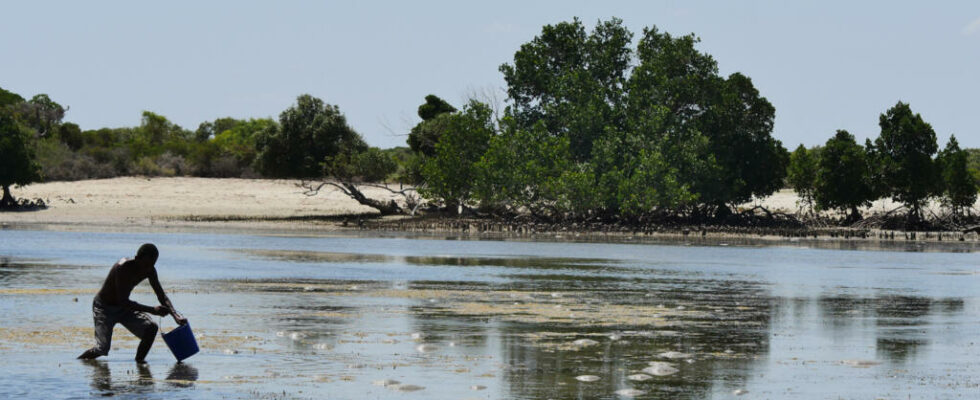In Madagascar, efforts to preserve marine resources are bearing fruit. Vezo fishermen in the Great Southwest are seeing remarkable success this year: they have caught a volume of octopuses never seen in the last 15 years. These fishermen, organized into communities, monitor and regulate well-defined fishing zones themselves. From June to August, they even close access to these zones to allow marine biodiversity to regenerate.
2 min
From our correspondent in Antananarivo, Sarah Tétaud
Samson gazes at the lagoon that provides him with most of his income. Since 2010, he and about fifty other fishermen have joined the initiative of the ” locally managed marine areas “This year’s results are exceptional. Samson explains: ” We are very happy because we have collected 1.3 ton of octopus in just two days, compared to 900 kg in previous years. This is the first time we have reached such a quantity. I believe this is due to our patrolling efforts, even at night, to monitor the area. We have really worked hard to protect our fishing reserve.. »
In Madagascar’s 200 locally managed marine areas, fishermen set their own rules, known as Dina. In Nosy Ve-Androka, where Samson lives, fishermen have banned the use of ” tarikaky ” (Or ” beach seines “), large nets pulled from the beach that scrape the seabed and carry away everything in their path. Just like torch fishing, the ” laro ” is also prohibited. This consists of pouring a decoction of local plants into the water to ” put the fish to sleep “, a method that actually kills them. In addition, fishermen have decided to temporarily close certain areas to allow the species to regenerate.
Also readFishing agreements: negotiations between Madagascar and the European Union stumble
“All this did not happen by chance”
” But all this did not happen by chance. “, underlines Domoina Rakotomalala. This change is partly due to the efforts of the Ministry of Blue Economy and those of NGOs like WWF, for which Domoina works as coordinator of marine activities.
Domoina explains: “ We have been raising awareness for years about the scarcity of fisheries resources and educating fishermen on better resource management. Fishermen see a decrease in catches, but they often attribute this to the growing number of fishermen in the area, which attracts more people looking for new sources of income. That is why education is crucial. Behavioural change for better management is also driven by the economic benefits that come with it. At WWF, we facilitate the connection between fishing communities and private buyers for their products. »
Crucial economic opportunities, which make this local management of marine areas the main motivation for fishermen.
Also readMadagascar: Like the Bara, a researcher suggests treating locusts as “a plant” and not as a scourge
